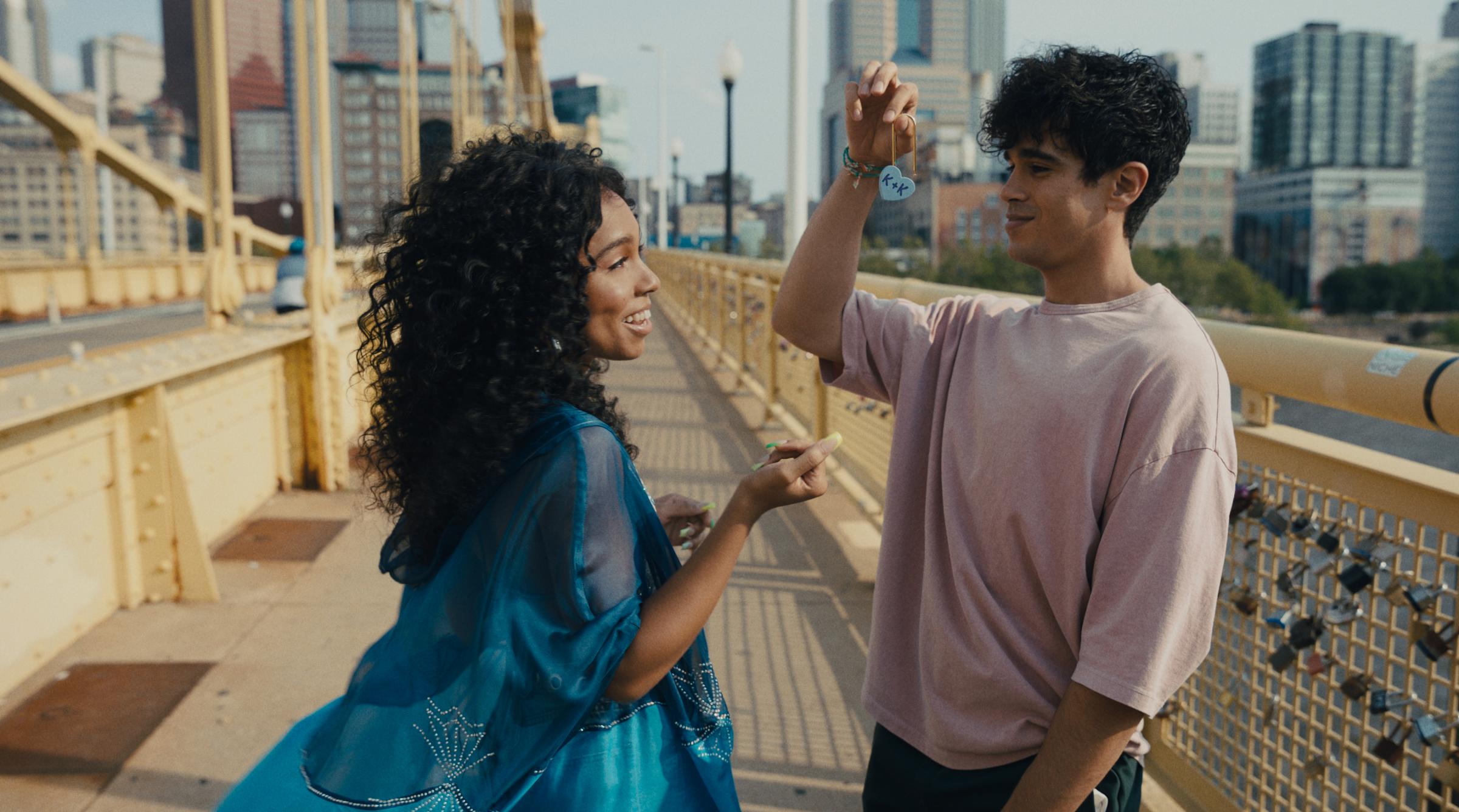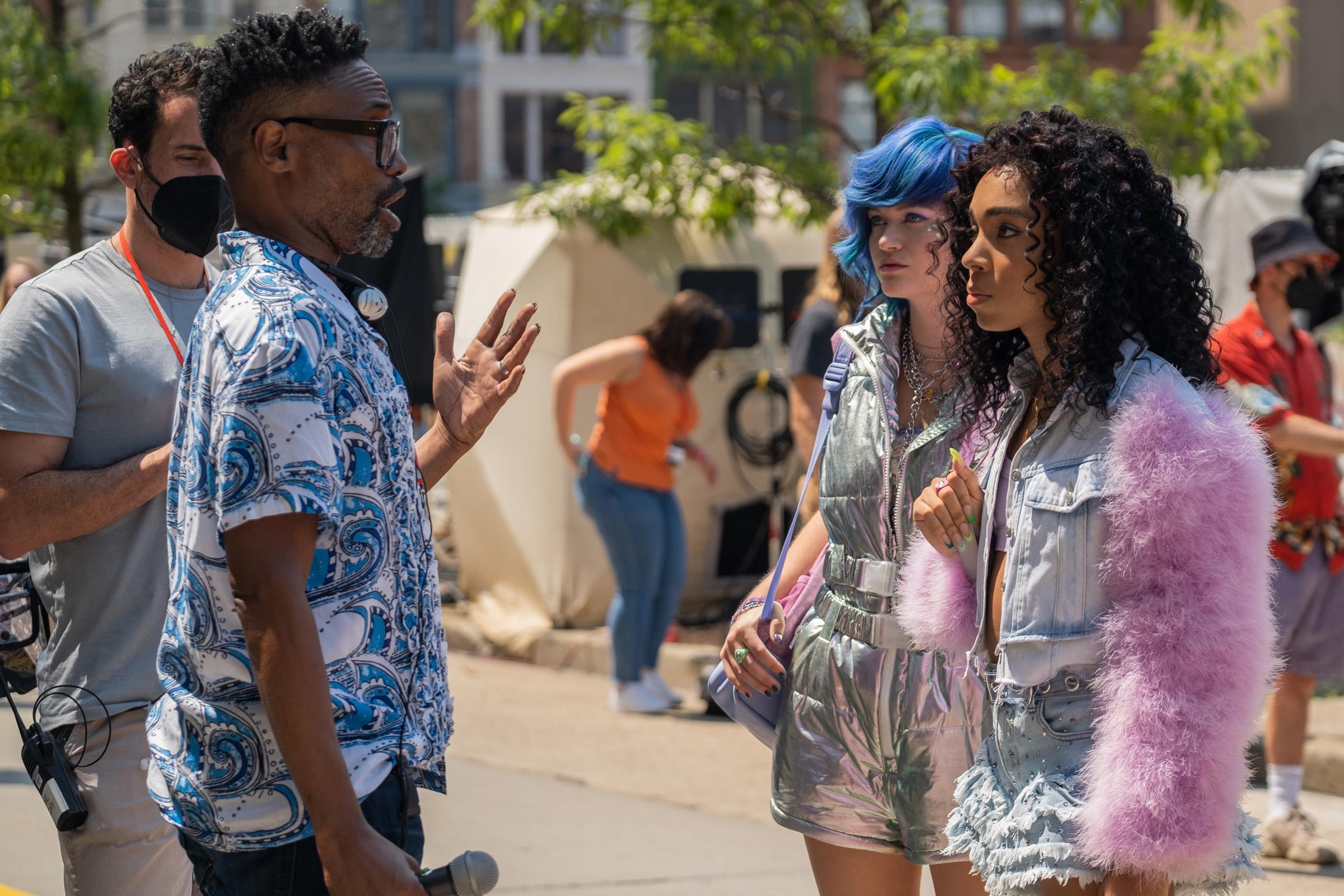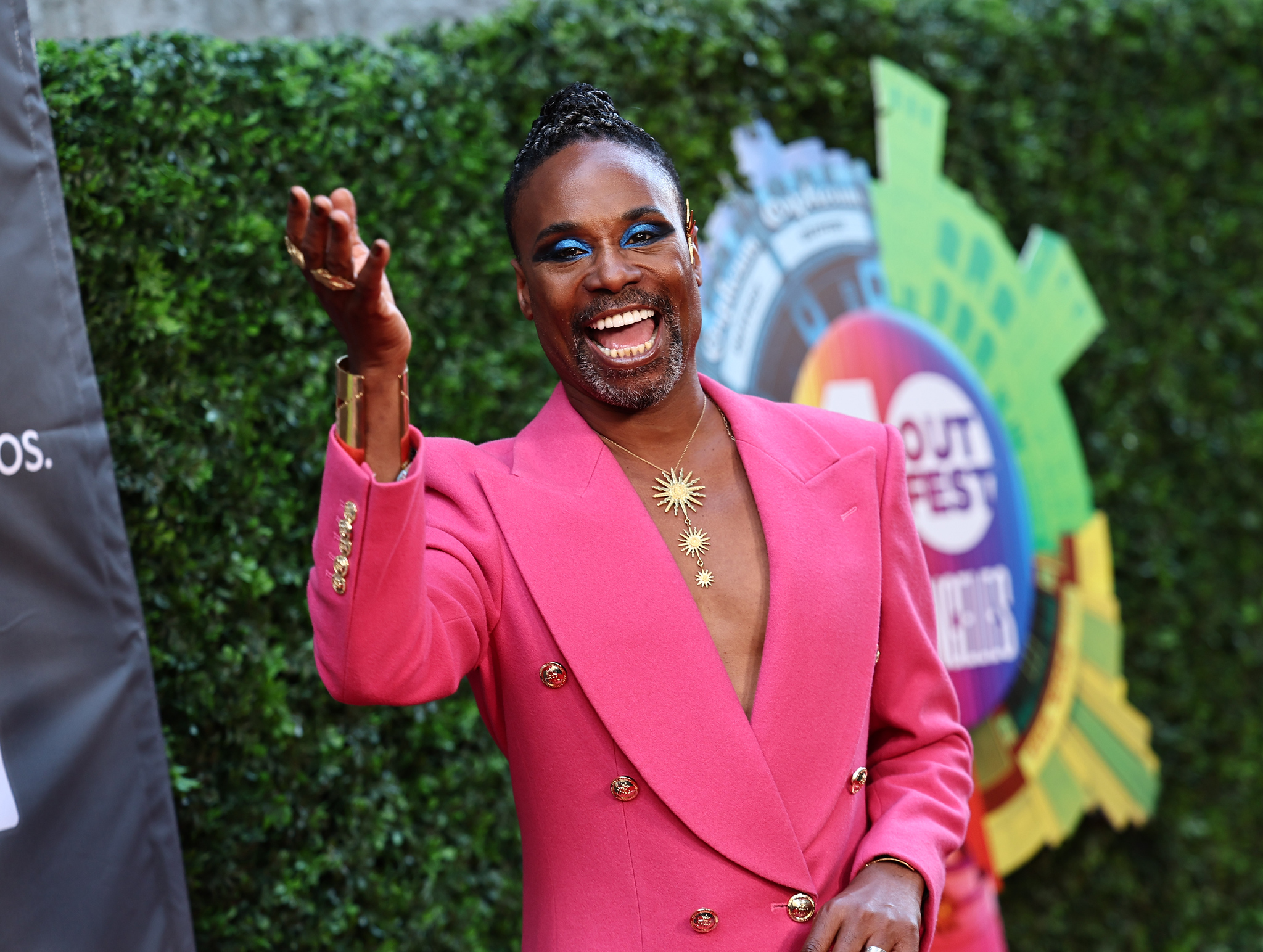Billy Porter is known for his work as a pioneering film and television actor, writer, singer, stage director, and musical theater star—but he’s never been behind the lens of the movie camera, until now. At the Opening Gala of the 40th annual Outfest film festival, the Emmy-, Grammy-, and Tony-award winner made his big-screen directorial debut with the vibrant teen rom-com Anything’s Possible.
For Porter, being approached to direct the film was a dream come true. “And when dreams come true, you jump on it,” he told TIME.
Anything’s Possible, written by Ximena García Lecuona, is a sweet, modern take on a classic teen coming-of-age story. The film follows Kelsa (Eva Reign), a self-assured fashion- and animal-loving trans girl in her senior year of high school, who finds herself navigating the joy and drama of first love when she’s asked out by her cis classmate and crush, school heartthrob Khal (Abubakr Ali).

Porter was involved in every aspect of the project, from hand-picking the cast to bringing together a team of almost entirely queer guest artists to write six new songs for the film’s soundtrack, which he also performed on and executive produced.
“I was so moved by the story, the uniqueness of the storytelling, and what it represented,” says Porter. “It was perfect for all of who I am, and what I want to say as an artist.”
‘We have to do it ourselves’

In a time of virulent anti-LGTBQ+ legislation and sentiment, which targets trans and gender non-conforming people in particular, Porter says he hopes the film will empower young Black trans women to “encourage and inspire” themselves.
Read more: As Texas Targets Trans Youth, a Family Leaves in Search of a Better Future
That spirit of community self-determination was exemplified on the set of Anything’s Possible, where Porter says working with a team of other queer people to tell the story, including García Lecuona and Reign (who was also making her acting debut), created “an authenticity and a shorthand.” He continues, “I was really blessed with this one. I had everybody I’ve wanted on the team, and I think that shows in the product.”
Anything’s Possible will be released on Amazon Prime Video on July 22. Long gone are the days when this kind of modestly-budgeted, human-centric story could expect a major theatrical run. But the silver lining of films like this one being released on a streaming platform is how widely accessible it makes them to marginalized audiences who, for financial, disability, or safety reasons might lack access to the theatrical experience. “Eyeballs will be on it because you can watch it from your house,” Porter told Variety earlier this year. “And that’s the audience that it’s for.”
Porter has spent his career thriving in the face of racism, homophobia, and anti-queer bias in the film, television, and theater industries—from winning a Tony in 2013 for Best Actor for his portrayal of Lola in the musical Kinky Boots, to becoming the first openly gay Black man to win a lead acting Emmy in 2019, for his performance as Pray Tell in Pose. Most recently, his work producing the musical A Strange Loop garnered him another Tony win, for Best Musical. Today, he says he’s learned, “Ain’t nobody gonna come save you but yourself. We have to do it ourselves. Our hope, our light has to come from within. Once we do that, nothing can stop us.”
In its 40th year, Outfest continues a legacy of activism

In addition to celebrating the premiere of Anything’s Possible at Outfest, Porter also received the organization’s Achievement Award, honoring his groundbreaking contributions to LGBTQ+ activism and art.
“It’s just full circle for me,” he says of the award. “Twenty-two years ago was the first and last time I was at Outfest, with Greg Berlanti’s The Broken Hearts Club, and that was when the dream was hatched for me to be a filmmaker myself. I was just a little musical theater baby, [and] here I am 22 years later with all of the dreams coming true, and it’s just magical. I am grateful to have this kind of voice.”
Damien S. Navarro, Executive Director of Outfest and a native of Los Angeles, remembers his first time at Outfest, too: attending one of the festival’s screenings at “19 or 20, with all the stars still in my eyes.”
Today, those stars haven’t faded, but his purpose has sharpened. What began in 1982 as the Gay and Lesbian Media Conference has grown into a respected media and arts organization, as well as an eagerly anticipated annual celebration of queer creativity and culture—and Navarro has high hopes for its future. The organization recently launched The OutMuseum, a free streaming service featuring queer films and documentaries, along with, “ever-rotating stories, conversations, panels, [and] educational moments specifically for our community.”
“That kind of activism through content is where we’re really starting to double down,” says Navarro.
In creating this year’s festival program, his team focused in particular on centering the stories of trans people, and Black and brown members of the queer community—those who have historically been excluded from many spaces, including those meant to be safe havens for LGBTQ+ people. “How do our rights get taken?” asks Navarro. “Because we as the queer community are not doing the job of understanding the needs of [the most] underrepresented, disenfranchised, and highly targeted” among us.
Navarro says he’s proud of the festival’s legacy of activism, relating the story of a sit-in at Los Angeles County offices by members of the festival’s board and staff that took place in the 1990s after the county announced intentions to cut the festival’s funding. Outfest has also honored and been home to some of the most pioneering and iconic work by queer storytellers like Daniel Ribeiro, Sir Ian McKellan, Jamie Babbit, and Elliot Page. He intends to ensure the full richness of its legacy continues.
“I do believe story is one of the most powerful things we have [but] we need to make it accessible. We have to remove every financial, geographic, technological barrier. And that’s something we’re poised to help do,” says Navarro. “Philosophically, that’s what I think the next five to 10 years look like.”
Porter, also a staunch believer in the power of storytelling to uplift the queer community in times of darkness, shared a Toni Morrison quote he says he lives by: “This is precisely the time when artists go to work.”
More Must-Reads from TIME
- Donald Trump Is TIME's 2024 Person of the Year
- Why We Chose Trump as Person of the Year
- Is Intermittent Fasting Good or Bad for You?
- The 100 Must-Read Books of 2024
- The 20 Best Christmas TV Episodes
- Column: If Optimism Feels Ridiculous Now, Try Hope
- The Future of Climate Action Is Trade Policy
- Merle Bombardieri Is Helping People Make the Baby Decision
Contact us at letters@time.com